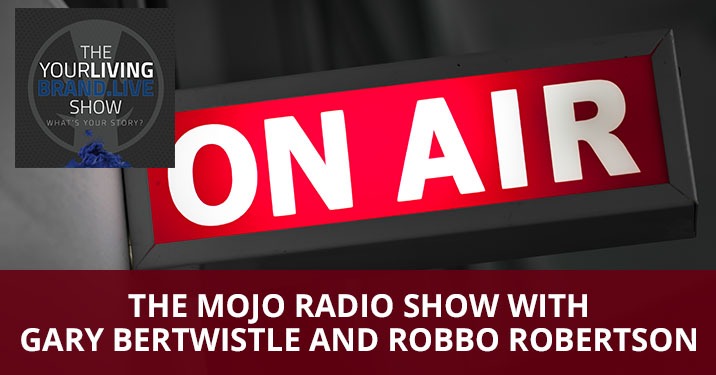
The word mojo goes back to shaman, voodoo, and wizardry. but in this day and age, mojo is mostly used to refer to the vitality that some people, leaders, or companies have. In this episode, host Ben Baker talks with Gary Bertwistle and Robbo Robertson about their show, The Mojo Radio Show, which is about helping people to get their mojo working. Sharing some information and discoveries that they have unlocked through the show, Gary and Robbo also talk about the key characteristics to look for in a guest so that they can be valuable to the audience.
—
Listen to the podcast here:
The Mojo Radio Show With Gary Bertwistle And Robbo Robertson
I have a treat. We’re talking to two of my favorite guys, my two mates coming to me from Australia. I had the pleasure to be on The Mojo Radio Show and I had to return the favor because these guys were a pleasure to talk to. They were insightful, they were funny and they were a lot of fun to be with. Robbo and Gary, welcome to the show.
Thanks, Ben.
I love having you guys here. They’re real troopers. These guys are up at 6:00 in the morning doing a radio show. I’ve got to give them kudos for that. I want to talk to you about the show because I love what you guys have been doing it. You have been doing this for a long time now. I want to talk to you about the show. What was the impetus of the show? Who’s your audience and what makes you so valuable to them? You had built an incredible audience over the years.
It’s taken a lot of hard work. The show started with Gary coming to me and going, “I’m traveling a lot, listening to a lot of podcasts. There’s a lot of not so good stuff out there. I reckon we could do something that’s a bit different and a bit groundbreaking.” That was where it all started. It wasn’t a guess.
We weren’t early into the podcast world. We came in when The Wave was beginning. The problem was a lot of guys who started shows were very narrow on their content. After you’d listened for quite a while, they ran out of areas within their chosen topic to talk about and also the production wasn’t very good. Back in the day before people started building their own studios and doing everything live, the production wasn’t very good. The host is coming through clear but the guest would be on some crappy line. It was not well-produced. It was not great content and there wasn’t great consistency. Because we both used to work in radio here in Australia, I rang Robbo and said, “You’re a production guy. You can make it sound good and you can edit it properly. We control the quality of the sound. We get great guests, treat them as guests and make it about the guests. We do a show around mojo, which is in and out of work. It gives a lot of flexibility with topics and we add value.” That’s the new recipe for what we want to do. That’s how it all started.
A big commonality is people take the time to think and do deep work, putting message out to the world. Share on XWhere do you guys define mojo? Let’s start there because mojo is one of those words that’s been around forever but it means different things to different people. I want to know what it means to you.
It goes back to the shaman and voodoo and wizardry. It used to be a purple velvet bag that the shaman would carry which should be full of the herb of this and the bone of that and a little medicine. If somebody was off or needed something special to make them feel better, they dip into their paper bag and pull out the mojo. Today it’s about that vitality that some people or some leaders or some companies have. This is not based on skills or competencies, it’s about how they turn up. Mojo can be anybody in any organization, any social group, any family. It’s that person who looks at things differently and turns up in a different way. They approach everything they do and the people they approach with extra verb or vitality. That’s how mojo is now and teams can have it and then lose it. People can have it and lose it. Social groups can have it then lose it. Our job is to help people. If I haven’t got it, they have to find some of it. They’ve got to keep it, but if they never had it, where is it?
That’s important because you’re right, it’s not something that you can learn. Mojo is not something that you could learn. You either have it or you don’t have it. It’s like being a leader. You can learn to be a better leader. If you don’t have leadership qualities within you, if you don’t care about other people, if you’re not empathetic, if you’re not a great audience, if you’re not interested in making other people better, if those aren’t part of your natural DNA, you’re never going to be a leader. You’re never going to be a natural leader. You can take courses, you can read books but if you don’t have that natural essence, being a leader of people becomes so much harder and almost impossible because it’s all about the know, like and trust. I love that about the thought behind The Mojo Radio Show. It’s dealing with the people out there that are the movers and shakers, the people that are doing something different. What brought you to that impetus? What brought you to the place that said, “These are our people. How are we going to celebrate them?” What is the way you do celebrate them?
The podcast world is changing a lot. There are a lot of podcasts now that the host wants to be as much as the star of the show as their guest. Mojo Radio Show was built upon the greatest like Letterman. In Australia, Andrew Denton, Dan Rather, the great interviewers where the interviewee is the star. It’s about extracting from them, what are the commonalities in their leadership or their day-to-day rituals or routines, how they approach the world, how did they do it? What are the commonalities across these people in all scopes of life? It gives them this extra something. How do they turn it up?
I agree, there is a certain nature part in leadership. What we discovered through the show is that by asking the right question, there are some commonalities of leadership and high performance that we can draw in parallel to in whatever field they’re playing that we can then take away to that team and to our children and to our families. That’s been the exciting part. From day one, we were always about talking to a person who was probably in business, either for themselves or within the work. We had it in mind the certain person who we wanted value from the show. They wanted people who wouldn’t take themselves too seriously, but will take the guest seriously. If they gave their time to our show, they would walk away with gold. We aim to do that now for six odd seasons going into seven seasons. I have to say, I do think there are some certain standout commonalities we’ve discovered through that questioning process.
It’s always a thread. Week after week, the people we talk to are so varied in what they do and how they do it. There’s always a thread and that’s one of Gary’s talents as an interviewer. He picks up on these threads and you can go back five or six episodes from where we are and you can follow this thread, this theme that runs through all these amazing people. That’s been the biggest revelation for me. As someone who hasn’t thought of working on this side of what we do regularly, it is quite interesting how these threads could have weaved their way through these people’s lives. They all seem to have these similar traits, ways of doing things and the way of looking at things.
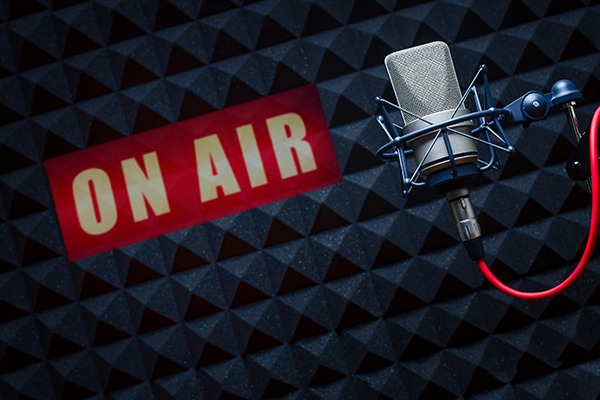
What are the couple of these commonalities that you guys are seeing?
I would say if you were looking at the commonalities and if you talk specifically of leadership and leadership of self, the leadership of family or community group, company, organization, brand, then humility would absolutely be a primary standout. Whether it be one of the most successful sporting teams in the world, the Old Blacks from New Zealand right through to the great military leaders we’ve spoken to, company leaders. Humility and being of service to others, truly being of service to others and asking the question about, “Who can I help? Who can I serve better?” We do a show around resilience, grit, bouncing back, dealing with troubles. That’s one of our most downloaded shows, Resilience and Grit.
It’s taking the time to be curious. A big commonality is people take the time to think and do deep work. They journal, they disconnect. Sitting under all that is they are very clear on their identity of who they are. Their identity is not wrapped up in being a business person. That their identity is wrapped up in who they are and the key responsibilities in their world around their children, their community and family. They are giving back, taking the time to think, pondering the future, pondering the what-ifs. They are the thread underneath the show with their identity, curiosity, resilience, certainly humility, being of service. Regardless of whether it’s first responders, whether it’s somebody leading a small business, whether it be someone who is a wonderful author who is putting the message out to the world. Definitely, there are things that have been in common thread.
That’s interesting because to me, those are the true characteristics that make people interesting. The people that are humble and care about others, the people who want to listen about others, the people that are worried about more than themselves and the greater good, those tend to be the people that are the true leaders in the world. Those tend to be the people that other people want to follow. They are the people that excite other people. The fact that you guys can get the most out of those people is amazing. When I was on your show, I felt that it was a conversation. It was purely a conversation and I love that.
I love the fact that you had some information about me but more than anything, you guys listened. You were interested. I love the fact that you do that in the show and that is probably what makes your show so successful. As you said, it’s not about the host, it’s about the guest. I’m sure at this point in time, you can be as picky as you want about who you’re going to pick and who you’re not going to pick. What are the key characteristics when you’re looking for a guest that makes them someone that you think is not only going to be interesting in front of the mic but they’re going to be valuable to your audience?
To be able to achieve success in podcasting, you must listen, watch and read everything that someone's done. Share on XIf I can prequel this, I’m sure Gary will have a separate answer. Gary does the most of the guest recruitment for want of a better word. For the ones that I’ve thrown into the mix, one comes to mind straight away. We had a guy on named Noel “Razor” Smith. He’s a UK resident who spent decades in jail. His story was that he turned his life around and got out of prison. What inspired me to write Gary an email and go, “We should talk about getting the guy on the show,” was that story. It’s that inspirational story of he’s a hardened armed robber who’s turned his life around and got himself out of prison and not only that, he became a celebrated author and journalist. Sometimes it’s the story but for Gary, he sees other qualities that I don’t. I look at some of Gary’s guest and sometimes I go, “Hmm,” but then we finish the recording and I go, “That was awesome.” I’m sure he has his own process.
I don’t know that it’s always about the story. You can hear a great story and that will entertain me for 40 minutes but that’s all fine for them. What do I do? I listen to probably sixteen to twenty hours of podcasts a week. When I’m doing research for our show, I listen to your stuff when you come on the show. The other part is finding information for myself that I can use. I approach it like investigative journalists where I am listening to somebody else in the interview techniques and also what information this person is sharing. We’ve got a guy coming up soon on the show. I heard him on the show. What I listen for is what is he talking to? How does that relate back to our target audience? Can they get gold from that? What has he talked about? What hasn’t he talked about that I know he could talk about? Would it add value to a person in their own world, in and out of work to help them be better?
The whole idea is to listen to people with not learning for yourself but also a curious mind to go, “What is he or she saying? What are they not saying that they could say? Will that add value to the audience, to make you better in and out of work to improve your world? There have to be tangible takeaways or insights and the worst thing is when you have Ben Baker come on this show and all you’re already talking about what you’ve done in other shows. That’s not going to cut it for us. There’s a woman named Preethaji who is seen today as a modern-day philosopher who owns her own academy in India with her husband, Krishnaji. We talked about this and she said, “Too many people are doing and not being.”
For me, we never wanted it to do a podcast. We wanted to be great podcasters. To do that, you have to have the best production, you have to make it sound great. You have to make it interesting as it sounds. You have to have the best guests and you’ve got to draw out of them the stuff that they haven’t talked about. Even in a lot of cases, we find stuff that they haven’t even thought about before. You’ve been given a little cue somewhere on what they’ve talked about or written and then you product that. You take them on a journey. That’s to me, the art of the interview. One of the things that I’ve taken from Preethaji is I never wanted to do a podcast. I wanted to be a great podcaster with a great podcast show. It’s a better story but you’ve got to go beyond that too. There are many people who have told that story in ten podcasts, twenty podcasts.
We interview people who have done a thousand podcasts. Suzi Quatro, she’s done probably 100,000 interviews but we found an area that she’d never talked about before. To me, it’s taking the time to think and journal and go, “What’s she saying? What do I want to know? What hasn’t she said before that will add value to Ben’s world?
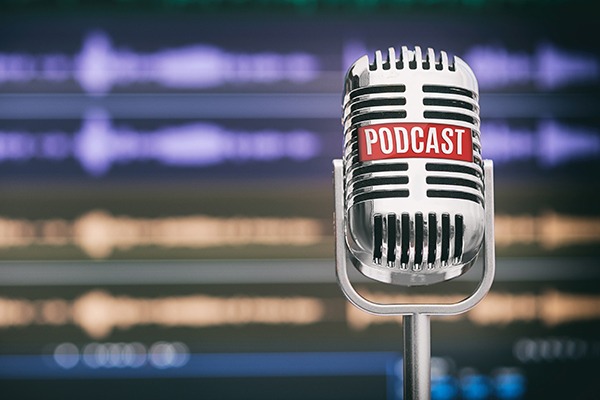
Gary’s not giving himself full credit here because of the bit he’s talking about with Suzi Quatro wasn’t something she hadn’t been interviewed about before. Gary found a topic which she’d never even thought about. Take credit where the credit’s due. Gary does pick some great questions.
We’re going to go into this because you’re right, getting the most out of your guest is critical for any great podcaster. I love the fact that you don’t want to do a great podcast, you want to be a great podcaster. You want to be a great interviewer. You want to bring insight to your audience. How do you prepare? I know that you listen to a lot of podcasts, but when you’re getting ready to have somebody on your show, what are the things that you do to sit there and say, “What can I do to find something on this person that’s going to be that breath of fresh air?” It’s tough because there are a lot of people that do podcasts that talk about the same thing over and over again. What are the things that you look for and you listen for to be able to be that little bit different and to take the conversation in a different way?
Our show production-wise has an element of rock and roll about it. We do take a lot of lessons from Brock. One of the keys for me is I listen, watch and read everything that someone’s done. I also take a cue from Elton John and Bernie. Bernie will hand Elton John some lyrics, “If he can’t write a song in 30 minutes, I close the piano and I walk away. I won’t try and draw blood from a stone.” The thing to me is I’ll stop prepping a show a couple of weeks out. We’re recording a topic that is completely in my wheelhouse. I have listened to these girls. I write general notes. I started to get together my list of questions and then I close the computer and go away, forget about it for a few days. When I go back, I do some more. Then once I’ve done all that, then I go back and say, “What haven’t I thought about if I was an audience and I listen to these people talk? What would I want to know if I was at the circumstance with their upbringing? How they do things? The brand I’ve built, I’m sitting in an audience watching them.”
It’s what they’re good at that they haven’t talked about but then stepping away and going if you put your mind to thinking about it, what do I want to know that they’ve never talked about before? I know they’re experts in it or it’s an area they have been true. It can add value to who are the target audiences for the show. It is a process. The problem now is that we don’t listen. If we are listening, we’re not hearing what’s being said. We look but we don’t see what’s going on. We don’t take the time to think to get beyond the covers into what’s going on underneath it. That will add value to your target audiences. That’s what Dan Rather and Letterman and all these great interviewers do is they don’t rush it. They walk on prepared and they are prepared to listen. There is stuff I want to talk to you about and draw it from you but I’m also allowing you to provoke our thinking. You’ve got to places that we haven’t prepared for but we’ve uncovered with you. We ideally take them on a journey through the interview where we can go to places we’ve thought about, but then also stop. They can randomly come up because you say something interesting. People like Jordan Harbinger and the great interviewers on podcasts, that’s what they’re good at.
I agree with you because when I do my show, I’ll walk in and I’ll do my due diligence and I’ll look through it but I don’t want to have an overly prepared show. I want to have a certain few questions that I have on the top of my head and a direction that I’m thinking of. For the most part, I want to listen. I want to ask questions, I want to listen and I want to see where that conversation is going to take us. You guys have that conversational style where you allow people to feel comfortable enough that the magic happens. That’s a skill that goes way beyond interviewing. That’s a skill of life. That’s a skill of business, that’s a skill of anything. I want to find out when you guys are doing that, when you’re in the moment, when you’re a part of the interview and somebody says something completely unexpected, how do you make them feel that is the most important thing at the moment and move it in that direction? Sometimes it throws your entire interview off but by doing that, it creates magic.
Sometimes if you drop a great piece of gold on the show, it may not be appropriate at that moment because you're in flow. Share on XEvery interviewer has got their own process. I’ve always had two pads in front of me, one big pad and one small pad. On the small pad, I keep all the gold eggs. When you drop gold like one of the bits you said was a great question to always ask yourself is, “What am I missing?” That’s gold. That gets into my gold journal. I keep that separately. I also got a big pad which is the scribbles. Although I know where I’m going with an interview, I’m also writing down cues of things you’ve said that I find fascinating. If I’m an audience, am I on the journey and can I take at the right time that makes sense to capitalize on without losing the complete flow of the show? Sometimes if you drop a great piece of gold on the show, it may not be appropriate at that moment because you’re in flow. I’ll write down what you said and then I have a feeling that now’s a good time to get back to, “Earlier in the show you said.” It’s to keep the flow because it might not be good at that time, but we might get to a point where it’s now appropriate and it keeps a few things together.
The other thing was a piece of gold by Laura Gassner Otting who was on the show. She used to work at the White House in the Clinton administration. She has book called Limitless. She said when she’s working with her clients, the people she works with face-to-face and with children, she’s always saying to herself, “It’s such an honor to hear your story.” When you are interviewing somebody and/or being interviewed like you are, the best thing we can do is to honor you to say, “It’s a privilege.” If they want to give you their time individually and listen, then we should honor that. A lot of podcasters don’t honor the audience and they take it for granted.
Robbo and I coming out of the radio industry, we’ve seen a lot of that talking. We want to value every word. In the process, how do you make them feel right? It’s knowing that you are listening and you do honor them and you are taking notes of things they’re saying to build the flow. At the same time, it’s having your own process, to capturing the right information, the right questions at the right time. To take not only the person being interviewed on the journey because you’ve got to set it up and take them on a journey but also the audience so they can stay with you, not get bored and turn off.
That’s got to be the base though. That’s got to be your starting point, it’s the audience’s story. If you don’t start with the audience and think, “Where am I taking them?” then you’re losing from the beginning.
We had a letter coming in from the audience not long ago. We did the show on controlling your mind. He said, “I started heading and went. These guys would have done the work. They wouldn’t have this person on there unless it was worthwhile. I’ll give it a crack.” The last line of his letter was, “That show changed my life because it suddenly freed up this person to be able to control the input and outputs from their inbox.” It was only because they trust us to put a show together. When we respect their time, knowing if you’re going to listen to us as an audience, we’re going to give you some gold and we’re going to work hard to extract the gold from a guest, then we honor the guests and we honor the audience. Somewhere in there and then behind that, you’re going to have your processes. How do you build that flow? You do respect them and that is the old radio days with building a breakfast show. It’s building up a radio show. If people get on 6:00 in the morning and when they leave you at 9:00 and get to work, they will feel good about their day.

I agree with you, it’s all about the audience. It’s important that your guest feels comfortable. It’s important that your guest feels welcome and they feel taken care of. In the end, it’s the audience that are with you week in and week out. If they don’t feel that you know, like and trust them and they don’t feel that they can know, like and trust you, they’re going to go find somewhere else. They want to see, “Is this show valuable to me? Week after week, are they providing me with something that makes me go, ‘Hmm?’” That’s a real challenge. It comes back to the question I asked about finding your guests. When you’re thinking about your guests, you need to be thinking about, “Is this person right for my audience? Is this person going to add value to my audience? Is this going to add value to the show in general? Is it going to move the needle?” What do you think is the number one thing that makes your audience trust you and come back week in and week out?
I would get a book a week. Send it to me. Then we’ll ask the guest to come on the show. We probably take two out of ten, three out of ten and I’ll read them all. The first part is scrutiny. You have to scrutinize all you hear, read or watch. To scrutinize is to say, “Am I getting value out of this or is this the same old, same old?” We’ve had people on leadership and wellness and curiosity. No matter what it is, we’ve had it on. I read the book and go, “There is nothing in here that they haven’t heard before.” There are another thousand books on leadership. If all that you’ve done is put together a bunch of stories from other people’s work, put in a book and use it as a business card on steroids for your speaking career. Before anything else, the scrutiny is to say, “Do we get value from this? Will this add value to our world? Would it get our mojo working? Can we build a great show? Can this person provide pieces of gold that can make your day better in or out of work?” That’s the absolute starting point and we’ve got shows which you’ll probably never see in the light of day because we know that in the grand scheme of things, what audience expects from us because there’s no opinion. There’s no new direction. There’s nothing but a new way of thinking to make them be better.
There’s a folder in my work station that if you’re an interviewer, you don’t want to end up in because you usually try and find your way out of there again unfortunately.
What is that folder all about?
They are the interviews that Gary’s referring to that fell short of the mark. It doesn’t go anywhere. They’re there during days when we need them, but there are some that have been there for a couple of years now, probably if not longer.
The Mojo Radio Show With Gary Bertwistle And Robbo Robertson Share on XI’m honored that I didn’t end up on that list.
You’re in a long line from that list.
By the way, before I forget it, shout out to Stan Peake for introducing us. It’s amazing how this world works and being able to have people be introduced to everybody else and how small the world becomes when we all connect.
We affectionately know him over here as the Peake-onator. He’s also another interview who’s a long way from that aforementioned folder.
I have one last question that I ask every single guest, and I’m going to get it from both of you guys. When the interview is over or you leave the room or you walk out the door, what’s the one thing you want people to think about you when you’re not there to defend yourself?
We’ve already touched on it. The essence of the show is that these guys will make my world better in or out of work and I can trust them to give me gold. That’s the whole thing. I take it very personally with the show we put it out in every respect, whether it be the production, the editing, the style, the questions. When these guys put the work in, put the time in and if they put something out there, it’s going to add that each of my will to make me feel better and give me tools that I can use to make other people feel better. It’s having the tools. I’ve had loads of letters and calls from people where they have gone to people who’ve lost their mojo and they’ve been able to take stuff that the guests have shared. They can then be of service to others to help them get the mojo working for their kids or their partner or somebody at work. That’s mojo work. It’s being able to be of service to others and to say, “We’ve got a killer guest with great content, great insights and it’s usable practical stuff.” It’s a fun show. It’s got a bit of rock and roll but always get something that we can execute upon.
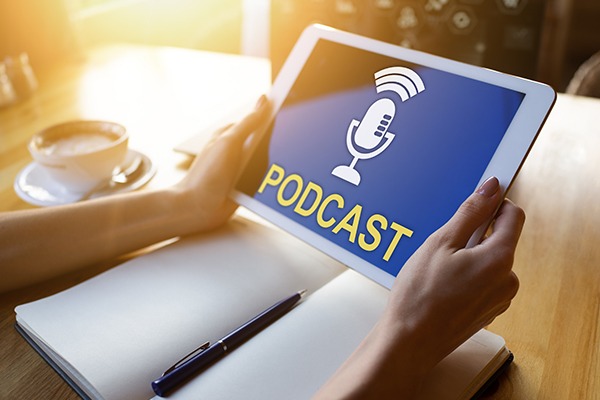
We interviewed the CEO of a number of Australian football clubs out here. In fact, correct me if I’m wrong, Gary, in his first CEO role, he was the youngest CEO that’s ever the big thing in the AFL. Before we started recording, one of his comments was he got the show on the bus on the way to work over Monday morning and he said, “I don’t even look at the title. I just turn the show on.” For me to have someone that’s best to our show and trust this so much that he doesn’t even bother to take a look at the title of the show, he just turns it on knowing that he’s going to get something out of it, walking out of the room after an interview or after finishing a show like I did, my question is when he gets to work on Monday morning after listening to us on the bus, what’s he going to say about that show? That’s my benchmark.
I want to say that you do not disappoint. You were wonderful to be interviewed by and I’m honored to call you guys friends. Thank you very much for being on the show. You guys are on my Spotify list and as it comes up, I listen to it. Keep doing what you’re doing and thank you for putting out such incredible stuff week after week. How do people get in touch with you in case people are looking?
Because we’re commercial radio guys, it’s amazing how this new medium of podcast allows people to hook up. A lot of people that we get introduced us to, because you can do it long-form and you can spend 40 minutes or an hour, sometimes an hour, with some of the guests we’ve had on, you almost become mates from across the Pacific. When you come to Australia, we’ll catch up for a brew, whatever that might be.
Let me put this to you because I don’t think Gary and I had spawned this idea when we spoke to you. We’re going to start doing some outside broadcasts. We want to take a few international guests when they’re here and record a podcast. I reckon we could take that a step further. We could do a duo podcast record. We could record for your show and ours. Chilling on Bondi beach, having a beer and some fish and chips, I reckon that’s fun.
We could have a lot of fun with that.
Important Links:
- The Mojo Radio Show
- Ben Baker on The Mojo Radio Show
- Noel “Razor” Smith – previous episode of The Mojo Radio Show
- Suzi Quatro – previous episode of The Mojo Radio Show
- Laura Gassner Otting – previous episode of The Mojo Radio Show
- Limitless
- Stan Peake – previous episode of The Mojo Radio Show
- TheMojoRadioShow.com
- https://www.Facebook.com/TheMojoRadioShowPodcast/
- https://www.LinkedIn.com/in/gary-bertwistle-helping-unlock-great-ideas-b5182011/
- https://www.LinkedIn.com/in/voodoorobbo/
- www.GaryBertwistle.com
- www.VoodooSound.com.au
About Gary Bertwistle
 Gary Bertwistle is one of Australia’s leading thought leaders on what it takes to unlock your great ideas to get your mojo working in and out of work. His career spans music, radio, retail and today is a highly requested speaker on the Australian corporate speaking circuit.
Gary Bertwistle is one of Australia’s leading thought leaders on what it takes to unlock your great ideas to get your mojo working in and out of work. His career spans music, radio, retail and today is a highly requested speaker on the Australian corporate speaking circuit.
He is the author of 6 books, including the best sellers “Who Stole My Mojo?” and “The Vibe”, he established Australia’s first-ever thinking venue in Sydney, The Ideas Vault, co-founded Australia’s leading cycling foundation Tour de Cure which has now generated well over $35 million for the research support and prevention of Cancer, and was a finalist in 2018 Australian of the Year Awards.
At the very heart of what Gary does is having people and organizations think differently. He has helped leaders in all industries and categories, to look at how they currently do things and address what needs to change in order for them to think differently and maximize the ideas that currently exist within themselves and the business, with the view of finding more success.
Find out more information about Gary at his website garybertwistle.com.
About Darren ‘Robbo’ Robertson
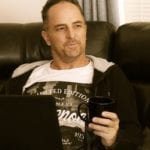 Darren ‘Robbo’ Robertson has spent more than a quarter of a century recording and producing audio for some of this country’s leading Media Houses and Ad Agencies. Much of his 13 years with the Triple M network was spent recording some of Australia’s (and the globe’s) biggest rock acts, as well as producing award-winning programs and promos.
Darren ‘Robbo’ Robertson has spent more than a quarter of a century recording and producing audio for some of this country’s leading Media Houses and Ad Agencies. Much of his 13 years with the Triple M network was spent recording some of Australia’s (and the globe’s) biggest rock acts, as well as producing award-winning programs and promos.
After turning his hand to TV post-production, he worked on projects big and small including the ad campaign for the Sydney 2000 Olympic Games, along with work for some of Australia’s biggest retailers and service providers. Short films, TV programs and commercials have all had an added touch of ‘Audio Magic’ courtesy of Robbo’s audio experience.
Today he works on projects for a client list that includes Woolworths, Foxtel, The Triple M Radio Network, Subaru, and KFC amongst others, and provides sound design elements for some well-known video games and the world’s leading SFX providers.
Love the show? Subscribe, rate, review, and share!
Community today:

